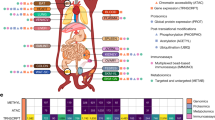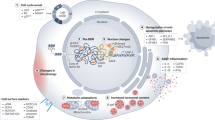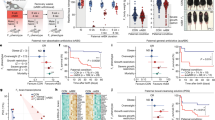Abstract
Psychosocial factors are thought to influence risk and survival from cancer. We have previously studied specific behaviours in transgenic male CD-1 MT42 mice, which overexpress the gene encoding human transforming growth factor alpha (TGF alpha) in multiple tissues, and which develop a high incidence of spontaneous hepatocellular carcinoma. The male TGF alpha mice spent a lengthened time immobile in the swim test, were highly aggressive, had increased plasma levels of 17 beta-estradiol (E2), and reduced natural killer (NK) cell activity. The female transgenic MT42 TGF alpha mice do not develop an increased rate of tumours at any site. We hypothesised that if the alterations in male TGF alpha mice are associated with their development of hepatocellular carcinomas, female TGF alpha should not show these alterations. The data in the present study indicate that female TGF alpha mice display shortened immobility in the swim test, suggesting an improved ability to cope with stress, and appear less aggressive in the resident-intruder test than non-transgenic female CD-1 mice. The female TGF alpha mice also exhibit a 3-fold increase in the plasma levels of E2, and a 3-fold increase in NK cell activity. These findings suggest that the elevated expression of TGF alpha in the transgenic mice is associated with gender-specific behavioural alterations, and the development of spontaneous hepatocellular tumours in the males. Furthermore, TGF alpha alters hormonal and immune parameters similarly in both sexes. It remains to be determined whether the development of hepatocarcinoma in the male TGF alpha animals is associated with an impaired ability to cope with stress and elevated aggressive tendencies and/or whether manipulations leading to an impaired ability to cope with stress will promote tumourigenesis in female TGF alpha mice.
This is a preview of subscription content, access via your institution
Access options
Subscribe to this journal
Receive 24 print issues and online access
$259.00 per year
only $10.79 per issue
Buy this article
- Purchase on Springer Link
- Instant access to full article PDF
Prices may be subject to local taxes which are calculated during checkout
Similar content being viewed by others
Author information
Authors and Affiliations
Rights and permissions
About this article
Cite this article
Hilakivi-Clarke, L., Arora, P., Clarke, R. et al. Opposing behavioural alterations in male and female transgenic TGFα mice: association with tumour susceptibility. Br J Cancer 67, 1026–1030 (1993). https://doi.org/10.1038/bjc.1993.188
Issue Date:
DOI: https://doi.org/10.1038/bjc.1993.188
This article is cited by
-
Gene × Environment Effects: Stress and Memory Dysfunctions Caused by Stress and Gonadal Factor Irregularities during Puberty in Control And TGF-α Hypomorphic Mice
Neuropsychopharmacology (2008)
-
Perinatal factors increase breast cancer risk
Breast Cancer Research and Treatment (1994)
-
Psychosocial factors in the development and progression of breast cancer
Breast Cancer Research and Treatment (1994)



